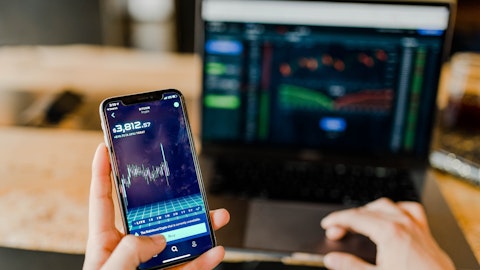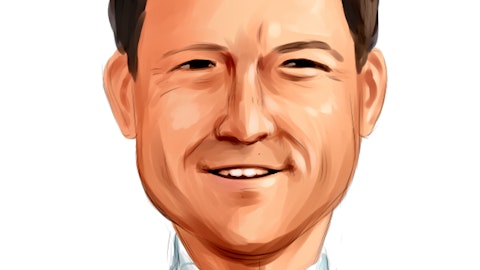Jerry Revich : Okay. I guess I was looking more from 2016 to ’19-time frame where the third Q just tends to be your lowest margin quarter, but maybe we can touch base on that off-line. And then in terms of just operationally, it’s interesting to see you folks posting the margin improvement that you’re posting, with the end market volatility over the course of the year. Can you just touch on operationally where you folks stand now exiting this post-COVID supply chain environment in terms of operationally, what we’re doing differently that’s allowing us to deal with all of these ebbs and flows in the end markets, while eating under absorption in some areas and still putting up these types of results. Anything you’re doing differently this cycle versus a couple of years ago?
Brooks Mallard: I would say, first, it’s hard to unpack kind of what we’ve done on 80-20 and pricing and some different things like that, from necessarily what’s going on operationally. What I will say, though, is as we’ve worked through, and Ivo alluded to this in his comments on the call, as we work through some of the supply chain issues that we’ve had in the back half of the year, we’ve come up with some really good projects around supply chain optimization, around material optimization and cost out and different things like that. And some of that is starting to flow through to the bottom line. And some of it, we think, will flow through to the bottom line in the next 2 to 3 years. And so while it was painful to go through, as we’re coming out of it, we have a robust set of projects that we think is really going to help drive productivity, both from a material perspective and a cost perspective.
Ivo Jurek: And Jerry, let me also maybe put a little bit of a pitch on here for what the company did over the last 2 to 3 years, right? So we have evolved our mix, we have driven new product vitality up, we have added much higher efficiency asset base into our business over the last 3 years. And during the same time, we worked through an incredible amount of volatility both from a geopolitical perspective, economic perspective and cost perspective. So I just believe that we have put the business on much stronger footing. And as the macro starts working itself through, things start to stabilize. I think that we are much better positioned to be able to truly demonstrate the potential of this enterprise.
Operator: And we will take our final question from Jeff Hammond with KeyBanc Capital Markets.
Jeff Hammond : I have a couple of quick ones. Just maybe speak to Europe. I’m surprisingly resilient. We are seeing kind of cracks for some peers. Maybe just speak to what you’re seeing there? And then just I know your first-fit business has shrunk over time, but just how you’ve seen any impact from the auto strike.
Ivo Jurek: Yes. So Jeff, on Europe, thank you for the question. Look, we continue to anticipate a better performance in the automotive business. So the trends in auto are better, both on the first-fit side, as well as on the replacement channels, much more stable, and we continue to see that stability certainly through the end of 2023. Look, energy is performing quite well for us in Europe. So that’s also supporting a reasonably robust performance. And I spoke about choppiness and weakness in Europe, Diversified Industrial, probably for fourth quarters now. So we’ve kind of anticipated that and we’ve been pretty open and transparent about the weakness in Diversified Industrial, and that continues to be pretty choppy and pretty weak.
So I don’t think that, from that perspective, we are a little different than some of the peers, but we do have a very good portfolio of products, and we have business that’s providing a little better stability through the replacement channels that we have built out over the decades here. So Europe is reasonably okay. And on the auto strike. Look, we have seen weakness in October. We anticipated recovery for the pre-strike output. So North America is such a small amount of auto OEM revenue for the company that it’s really not that material for us, but there’s been a small impact that we have taken into account, and that’s all embedded in our guidance.
Operator: And ladies and gentlemen, I will now turn the call back to Mr. Rich Kwas, for closing remarks.
Rich Kwas : Thanks, everyone, for participating. If you have any follow-up questions that can be reached over the course of the day, or in the future weeks. Thanks again. Have a great weekend.
Operator: Ladies and gentlemen, this concludes today’s call, and we thank you for your participation. You may now disconnect.
Follow Gates Industrial Corp Plc (NYSE:GTES)
Follow Gates Industrial Corp Plc (NYSE:GTES)
Receive real-time insider trading and news alerts



